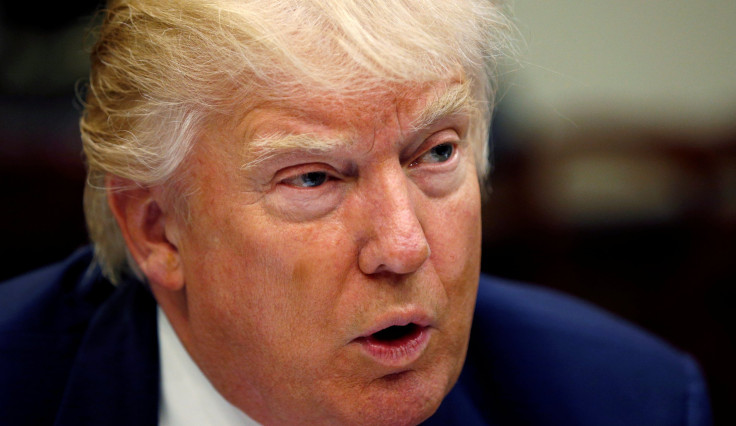Is Trade Bad For Jobs? Trump, CEOs Meet Amid Outsourcing Plans

President Donald Trump met Thursday morning with CEOs from two dozen companies, at least five of which were planning to move hundreds of jobs overseas, to get their advice on fomenting job growth in the U.S., Reuters reported. The executives, along with Trump and his advisers, formed working groups on such topics as taxes, trade and "the workforce of the future," Politico said.
The five companies — construction equipment manufacturer Caterpillar Inc., thermal technology company Dana Inc., tech manufacturer United Technologies Corp., conglomerate General Electric Co. and 3M Co., a multinational producing everything from tape to shampoo — were set to lay off 2,300 workers due to outsourcing, Reuters found, citing a Labor Department program that trains workers laid off for reasons related to globalization. Whether any of the other 19 firms whose leaders planned to meet with Trump Thursday were considering any offshoring measures remained unclear.
Trump, despite benefitting from and touting the advantages of the practice himself, has long focused on the shipping of jobs to lower-paid overseas workers and the drawbacks of open trade, issues that rallied his base of relatively less-educated voters more likely to take jobs vulnerable to outsourcing.
A policy stance of eliminating the use of labor abroad and resurrecting trade barriers, however, tends to be a double-edged sword.
The notion that outsourcing has contributed to falling incomes for low-skilled American workers and rising salaries for high-skilled U.S. workers, known as the “college premium,” over the past few decades has long been disputed. But freer borders for businesses often translates to lower costs for consumers, and when companies are forced to keep jobs in the U.S., the opposite can be true.
For example, former President Barack Obama boasted in his 2012 State of the Union Address that “over 1,000 Americans are working today because we stopped a surge in Chinese tires.” Thanks to a tariff from his administration meant to protect domestic tire workers, American consumers and businesses, as a consequence, paid $1.1 billion more for Chinese tires in just one year, researchers from the Peterson Institute for International Economics found.
Although transfers of manufacturing jobs to China and Mexico cost the U.S., by some estimates, hundreds of thousands of jobs on an annual basis, research has shown consumers not only benefitted from increased availability of lower-priced goods, but businesses employing workers overseas were better able to create new jobs, thanks to improved efficiency.
With the longevity of offshoring in mind — people have been complaining about the phenomenon for decades — many argue attempts to stymie the trend will serve only as a temporary delay, and the permanent fix lies in training workers in skills for positions less prone to offshoring.
© Copyright IBTimes 2025. All rights reserved.






















